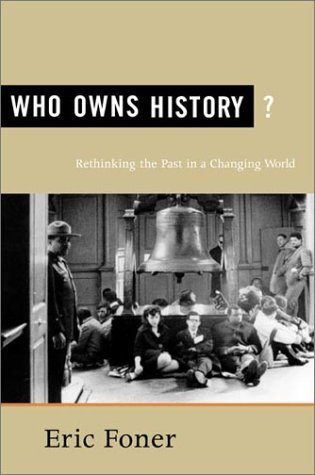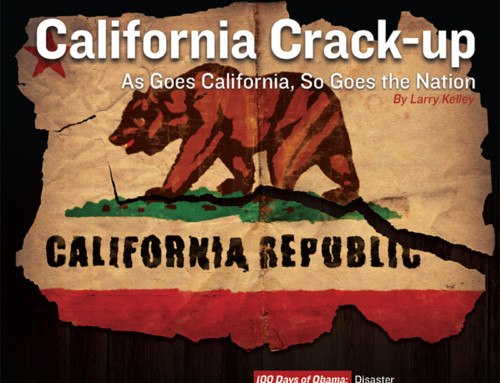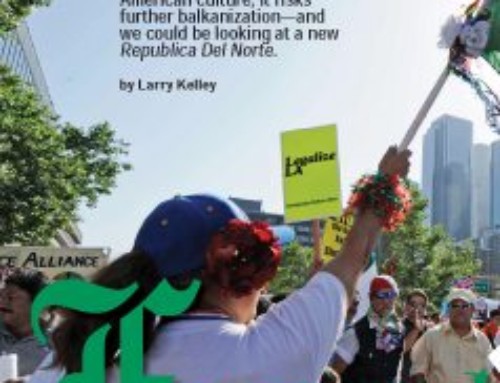The Confessions of Neo Don Quiote and a Decidedly Over-the-Hill Holden Caulfield
 Reading my hometown newspaper, I was elated to learn that our lone high school here in Piedmont ranks near the top in the nation in its percentage of students accepted to Yale, Harvard, and Princeton. Contemplating our class of ’02 sons and daughters now attending their first classes at many of the country’s best colleges and universities, I also paused to worry what our educators will be teaching them during their most important right of passage.
Reading my hometown newspaper, I was elated to learn that our lone high school here in Piedmont ranks near the top in the nation in its percentage of students accepted to Yale, Harvard, and Princeton. Contemplating our class of ’02 sons and daughters now attending their first classes at many of the country’s best colleges and universities, I also paused to worry what our educators will be teaching them during their most important right of passage.
As an example of why I worry, consider a new book by Eric Foner, the esteemed professor at Columbia University, where it was reported widely last October, the President of the ABC News division, David Weston, gave a speech, without a subsequent protest from a single faculty member, stating that he “had no opinion as to whether the Pentagon were not “…a legitimate target for the terrorists to attack”.
As background, Mr. Foner is possibly the nation’s most decorated living college history professor, a past president of both the American Historical Association and the Organization of American Historians. He is the poster boy for the well-tenured, education establishment. In a recent review of Foner’s book, by a Mr. Radosh, a Hudson Institute fellow, one learns that “…he (Foner) is one of the foremost proponents of radical history, a movement that is allied with post-modernism, both euphemisms of choice for Marxist and neo-Marxist historians. A Foner quote that I would hope will forever dog him references 9-11. He actually said “I’m not sure which more frightening; the horror which engulfed New York City or the apocalyptic rhetoric emanating from the White House.” Asserting that your are more afraid of measured words of military preemption to the indelible images of people leaping from hundred-story infernos, how does this twisted intellect command respect?
One could certainly argue that Foner’s title, “Who Owns History? Rethinking the Past in a Changing World” gives him away as one poorly suited to be teaching U.S. history, that being the history of a pluralistic, free, capitalist society. In my opinion, it isn’t that he’s ill prepared for the job simply because, throughout his book, he attempts no subterfuge about his disdain for the U.S. and its misdeeds, in favor of his admiration for the Soviet model. Rather, he’s not up to the job because it is he who should be uniquely equipped to know that ownership of history is something peculiar to totalitarian societies to which he’s so devoted. And the very fact that he’s allowed to teach and publish, while at one of the country’s most prestigious universities, proves that the U.S. does not attempt to own and or stifle historical hyperbole, no matter how half-baked.
Or consider this year’s commencement speech delivered at Harvard by a Zayed Yasin, titled ‘Of Faith and Citizenship, My American Jihad.” (As Bernard Lewis has pointed out, traditionally Islam has embraced as legitimate all forms of jihad or “holy war” against non-believers.) The speaker was an outspoken supporter of the Holy Land Foundation, a known front for Hamas whose assets have been frozen by the Treasury Department. By what twisted logic would the Harvard faculty think this appropriate at this moment in the nation’s history? I invite you to think hypothetically. In 1942, would a nation that was really determined to win World War Two, see members of American Samurais for Tojo giving commencement addresses at major universities?
Or consider a July/August cover piece in Harper’s by Stanley Fish, dean of the College of Liberal Arts at the University of Illinois, titled “Post Modern Warfare.” Fish is also the highly acclaimed dean of the post-modernist school of historians and intellectuals who, exactly like their revisionist allies over in Foner’s camp, revere Mikael Gorbachev far more than any American president, living or dead. In the Harper’s piece, Fish spends many thousands of words in the most chaotic, poorly written obfuscation that attempts to defend his well-tenured post-modernist colleagues, (Foner is specifically named and awarded kudos) who have argued that 9-11 Muslim perpetrators cannot be held accountable because, among other things, there cannot be an objective measure or evaluation of any event. I wouldn’t recommend trying to find the issue and actually reading the article, even for laughs, because the utterly sophistic piece drones on and on, ruminating about the incomprehensible meanings and definitions of common words such as “objective.”
To dispel any notion that Fish/Foner phenomenon is anecdotal, I’m afraid to report that they are a good deal closer to systemic. Consider a recent Zogby poll of college seniors; “…”Ninety-five percent (of college seniors) report that their professors teach that there is no such thing as right and wrong in the literal sense. Another poll taken for the National Association of Scholars reveals that college professors overwhelming address the issues of good and evil in terms of individual values and cultural diversity.”
Yet, as the Wall Street Journal recently reported only last week, a nationwide study of college professors has resoundingly confirmed there is no diversity of political thought among college professors. The Journal even cited my own alma mater, University of California at Santa Barbara, where across five departments, Econ, History, etc. they found the ratio of those adherents of the left versus the right was 72 to 1. Because political leanings spawn attitudes and beliefs, it is an article of faith among the vast majority of college campus faculty, for example, that the Palestinians are the aggrieved and the Israeli government is the oppressor. Even a cursory study of the region doesn’t support their position. Numerous corroborated intelligence reports have confirmed that Arafat’s own Fatah organization was diverting aid to purchase weapons and conduct attacks against Israeli civilians all through the Oslo peace negotiations, in fact, and all the way back to at least 1993. And one grotesque by-product of the relentless left-leaning revisionism on our campuses is the reemergence of a disease we had hoped had been eradicated from the modern world, rabid anti-Semitism. (I imagine the diversity police haven’t yet contemplated their own culpability yet.)
Although not as prevalent as it is in Europe, perhaps the worst example, anywhere in the country, occurred just across the bay at San Francisco State University last spring, during the height of Arafat’s most recent intifada. A group of Jewish students who were peacefully marching in behalf of peace in the Middle East were surrounded by a larger, vicious mob whose jeers invoked Hitler. Although the students were eventually escorted safely away, perhaps the real tragedy of the event was, that until, and even after the police arrived, not one faculty member stood with the students to defend their physical safety.
But there are more reasons for optimism. For the first time in 33 years, a President of Harvard University, Lawrence Summers, addressed the ROTC commissioning ceremony, telling the cadets; “There are no students who are graduating with whom I’m more proud.”
As noted in Bill Bennett’s book, Why We Fight, to a standing-room only crowd, Yale historian, Donald Kagen responded to his many colleagues who have averred that the U.S. foreign policy had to bear partial responsibility for our being attacked and murdered, “Such assaults on patriotism are failures of character made by privileged people who enjoy the full benefits offered by the country they deride and detest, its opportunities, its freedoms, its riches but who lack the basic decency to pay it the allegiance and respect that honor demands.”
Finally, Mr. Radosh concludes his review of Professor Foner’s new book, “…the impact of their (Fish and Foner’s) writing and analysis is going to be continually ignored by those they seek to influence: the people themselves.”
I believe that most of our sons and daughters, who are bright enough to be accepted by the country’s premiere universities, will see through these naked attempts at anti-American revisionism, will realize that there is plainly good and evil, and although the country may have, at times, erred in judgment, will conclude that no other nation in all of human history, has been more benevolent. We stand-alone as a country that has conquered nations who first attacked us and then paid those attackers vast sums of reverse tribute to rebuild them and set them free. And even with men such as Fish and Foner commanding their podiums, the country will somehow prevail again without them.





